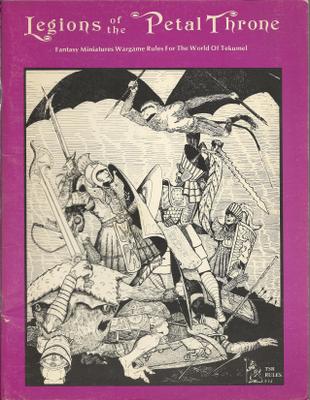
Some games, such as Polaris and Primetime Adventures, have distributed the authority of the GM to different players and to different degrees. Specific tabletop RPGs may have a unique name for the GM role, such as Dungeon Master (DM) in Dungeons & Dragons, Referee in all Game Designers' Workshop games, or Storyteller for the Storytelling System. The GM then begins the game by introducing and describing the setting and the characters. The gamesmaster (left) sits behind the GM's screen.

Role players at the Convention Burg-Con in Berlin 2009. In many game systems, characters can increase their statistics during the course of the game (or over multiple games). Together, these notes tell the player about their character and said character's place in the game world. As well as fleshing out the character's personal history and background, they assign numerical statistics to the character these will be used later to determine the outcome of events in the game. The exact tone, structure, pace and end (if any) vary from game to game depending on the needs and preferences of the players.ĭuring the first session, players typically create characters whose roles they will play in the game. Multiple missions played with the same characters may be related to each other in a plot arc of escalating challenges.
#Empire of the petal throne for indee games series#
Play is often episodic and mission-centric, with a series of challenges culminating in a final puzzle or enemy that must be overcome. Games are of indefinite length, from a single brief session (usually completed in a few hours) to a series of repeated sessions that may continue for years with an evolving cast of players and characters. This pattern was established by the first published role-playing game, Dungeons & Dragons, but is not universal across all tabletop RPGs. Some outcomes are determined by the game system, and some are chosen by the GM. The GM describes the game world and its inhabitants the other players describe the intended actions of their characters, and the GM describes the outcomes. Luckily, we can all make the games we want, and it is easier than ever to make them available to people.In most games, a specially designated player typically called the game master (GM) purchases or prepares a set of rules and a fictional setting in which each player acts out the role of a single character. Story, adventure, setting, and art direction are more than equal partners in creating meaning. That being said, I believe the trend in the RPG creation community is imbalanced in valuing game mechanics over narrative design. Watching actors and improvisers stream playing D&D is much better than playing myself.Īs for myself, I think that rules clearly matter, and that this can easily be demonstrated by trying to play an rules set that that badly suits the genre of story or the creative agenda of the players at the table.



If you want to rile up most RPG designers, tell them “rules don’t matter”.īut, occasionally, players do say this.


 0 kommentar(er)
0 kommentar(er)
